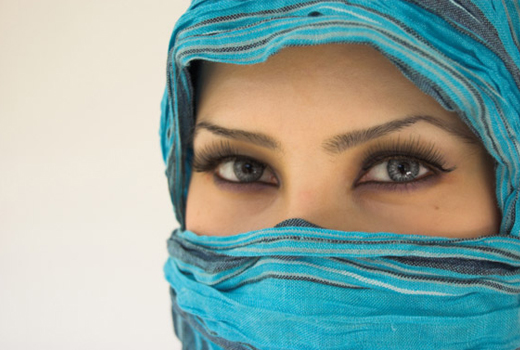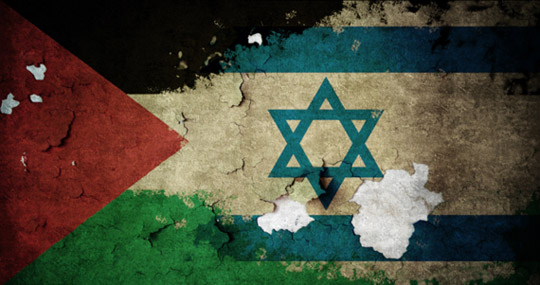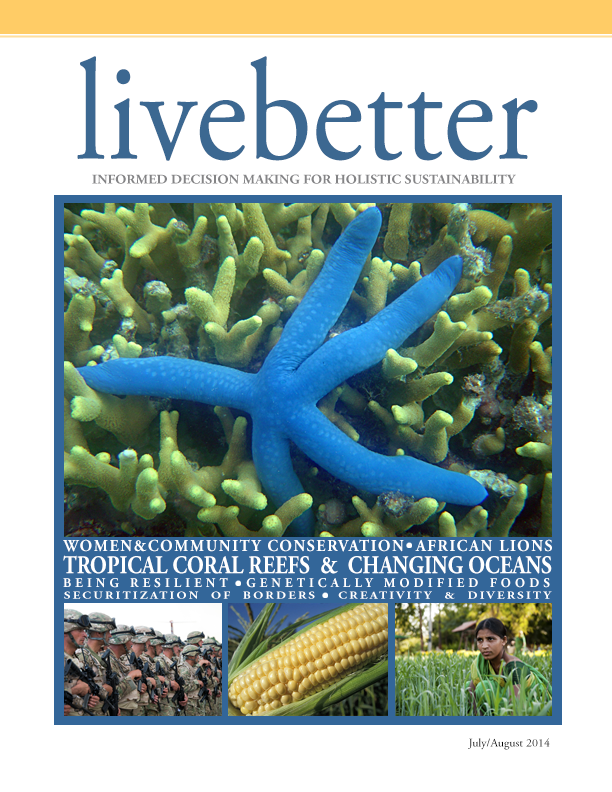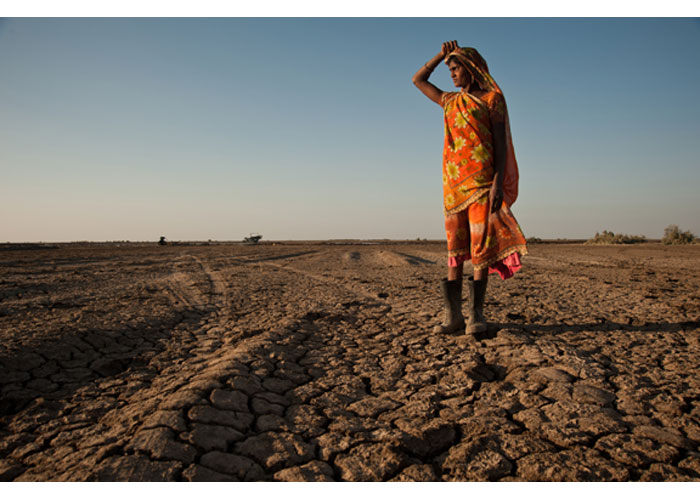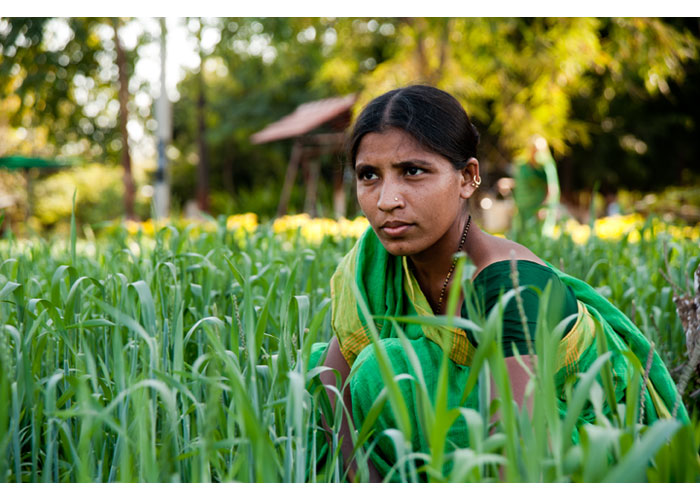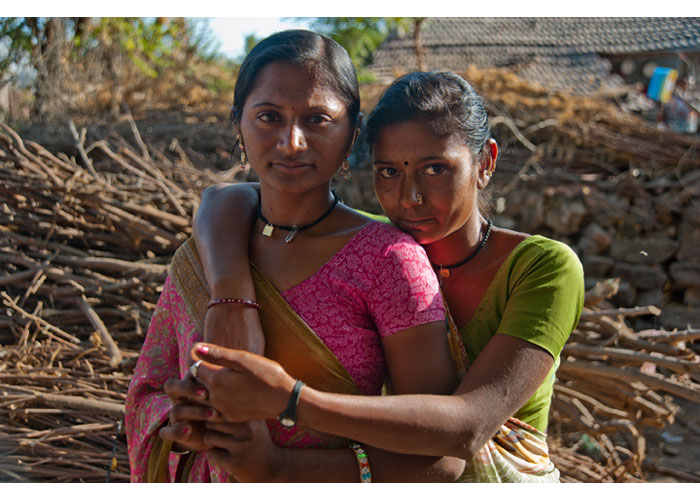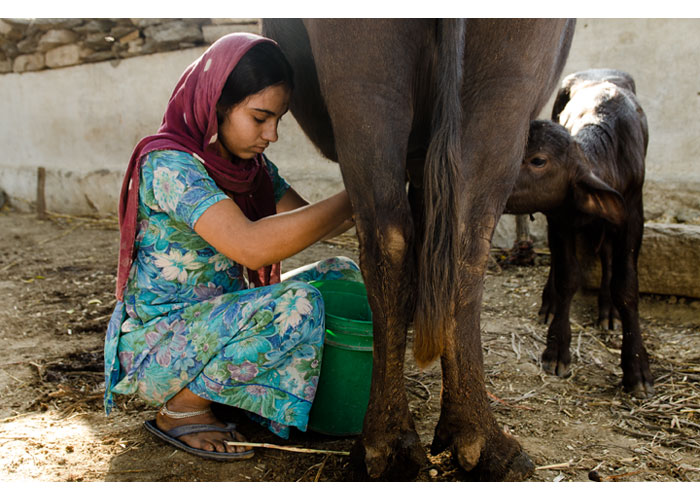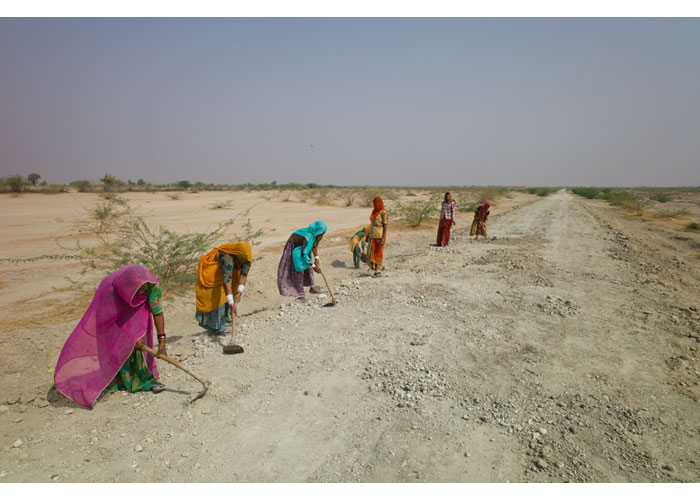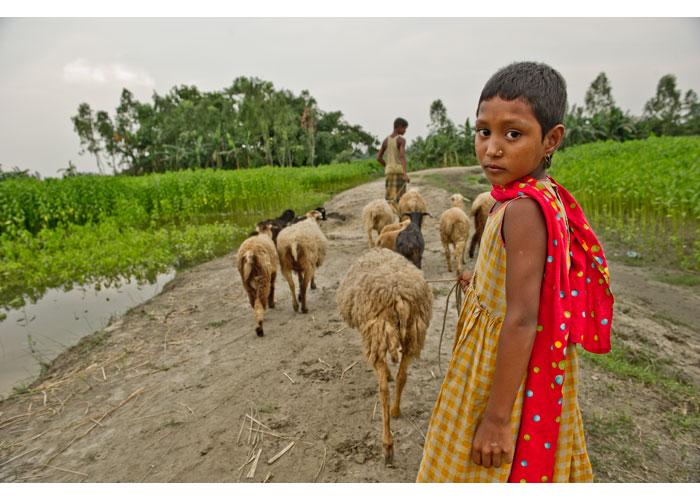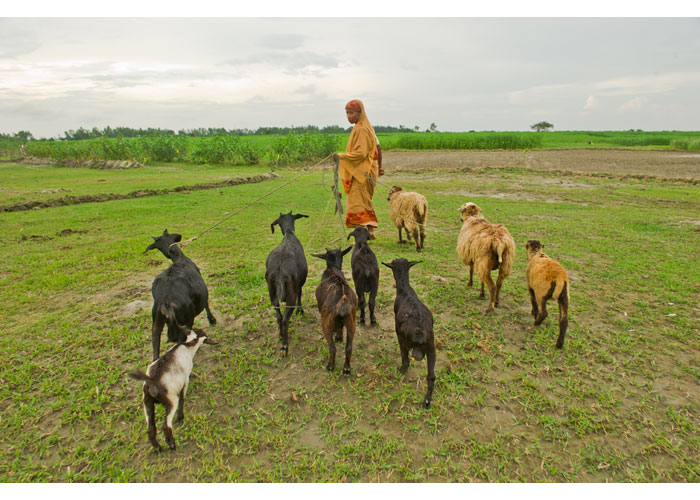The Ethics of Deep Diversity in Multicultural Societies, Part II
Social Changeability & Deeper Diversity
In the Outlines of a Philosophy of History of Man, Johann Gottfried Herder (1744-1803) views the issue of social changeability as the capacity of historical insight in human beings. This capacity is like a movement that goes deeper within man’s own selfhood and in others. This capacity, as Isaiah Berlin argues, leads man in responding to his need to belong to communal groups with their own expressive differences as well as their communication with each other.1 Hence, it is seen as a communicative means of discovering ourselves and others. Indeed, capacity displays not only different patterns of cultural changes but also shows that human beings stand at the center of all changes. “The whole course of a man’s life is change: The different periods of his life are tales of transformation.”2
The capacity of transformation derives from the very innate and reflective attainment of selfhood and the ways through which this world is constructed. That is to say, reflective beings move with man’s purposeful activity, hence the capacity to imagine and construe his own distinct world. By this account of reflective being and the innate way of the construction of selfhood, we are encouraged to think about how our man-made world is made internally and, hence, differently.
Resting on such an account of human capacity, Herder concludes that man possesses not a given and static identity influenced by exogenous forces and standing out of sense of selfhood. But, rather, it is essentially provoked by endogenous striving for discovery of itself. Hence, man is a developing being in continuous change of himself and his world. Man is, indeed, capable of understanding, exploring and determining deeper layers of inner life and, hence, is to be considered as the source of different values and patterns of life both individually and in a group.
Man is even the true origin of literature, arts, laws, philosophy, work and the entire course and aspects of civilization. If man’s capacity is the source of civility, such civility must be created differently.
Then, if we recognize man’s capacity to change as the essence of being human, we also need to acknowledge the unique characteristic of different nations, groups and cultures, and argue that there is nothing in social life without human beings. “Each nation must therefore be considered solely in its place with everything that it is and has – arbitrary separating, slinging into a confused jumble, of individual traits and customs yield no history.”4 For all these reasons, Herder takes man as a social being and suggests interpretation of historical methods in discovering how cultures are changed or formed differently. In this way, no people or culture is to be conceived from a similar perspective. Nor is Eurocentric dogma to be seen as the true way of living and the inextricable prerequisite to achieve happiness of another since each nation has its own pattern of cultural development.
This quote illustrates that if societies are shaped during their histories by their own diverse elements of time, organization and circumstances, it would then be naïve to formulate a unique approach for understanding all of them. Indeed, cultural developments are sensitive to the whole historical conditions of people. The culture into which one is born is a matter of chance. If a European was accidentally born into a non-European culture, he or she would develop non-European standards, and since these standards differ, there remains no reason to presume an inferior vision toward non-Europeans.
By the same token, ways through which people fulfill their own life and their authentic paths to happiness are different. Particularly happiness, along with the sense of selfhood and identity, is an internal disposition intimately and internally tied to the language and culture of people, and thus follows the same historical patterns. Inferred from such an account of the cultural development of people to identity formation, we can argue a deeper conception of diversity, which cannot be subordinated or elevated as inferior or superior to another.
It would be far from truth to claim that all people and cultures in developing their sense of selfhood and definition of identity follow the same patterns. Quite to the contrary, “each nation has its own centre of happiness within itself, just as every sphere has its own centre of gravity.”6 Since each culture – community – follows particular and embedded historical patterns for its development, arts, industry, commerce, science, political institutions and literature, as well as ideas, beliefs, customs and myths, all are involved in the constitution of a culture:
Deep diversity requires confirmation of culture as a composite of various, and sometime even conflicting historical forces, standing away from paths of development of other cultures except when some sort of harmonious equilibrium is provided.8 Rationalism of radical Enlightenment ignores such deep diversity and instead tends to conceive of different others from the narrow perspective of the European pattern of identity formation. Such a project of rationality, as Herder puts it, “has really only touched and affected a narrow strip of the globe.”9 Its pervasiveness, then, can scarcely be altered without changing everything at the same time.
Being aware of the incommensurable deep diversity within and among the volks, Herder strongly rejects the thesis that the historical development of people is to be conceived in light of the indifferent blind inspiration of Enlightenment rationalism. Instead, he confirms that human life must be understood from “within the living elements of its circumstances, such irregularities and contradictions that are perfectly human.”10 Correspondingly, he teaches his pupils that patterns of cultural development are varied and cannot be reduced to the dichotomous rightness or falseness relations of the Enlightenment age. Rather, all judgments and evaluations about the cultural life of people must be made through their internal relations and cultural developments.
To conclude, the perspective Herder draws displays the face of a human being who is unique in the sense and attainment of his selfhood. In this perspective, each man is regarded as having his own measure, as it was an accord peculiar to him of all his feelings to each other. This uniqueness is expressed in man’s purpose and meaning of life in a determinate way that is originally suited to him. In other words, man comes to know himself through originality of his selfhood and how this selfhood is expressed in relation to other selves in the social life. Through original expression of oneself, one discovers himself, accumulates and enhances his self-consciousness, and determines his stand in relation to others; a stand that orients him in the social life. But, discovering of oneself invokes original engagement and creativity in the lifeworld and through relations with others – being-in-relation.
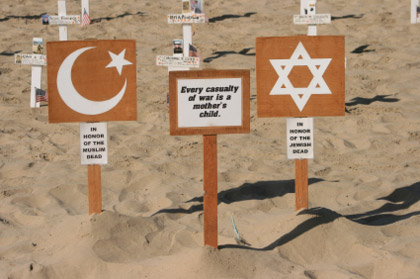
© iStockphoto.com/ManuelVelasco
Correspondingly, man’s centre of gravity is on a move away from self discovering to the engagement and creativity or, according to Taylor, “on the point of shifting from logos to poesis.”12 This engagement determines the complicated interaction of various social forces, individual powers, particular activities and attitudes that go hand-in-hand in a diverse historical process to form the general spirit and culture of people. That is to say, humanität is identified by the very move toward engagement and poesis from which the specific spirit of the volk originates. This argument is paramount for understanding Hegel’s account of selfhood.
The Ethics of Deep Diversity & Multiculturalism
The conception of deep diversity opens up a new window to argue an ethical account, which can effectively address the existence and coordination of deep diversity in multicultural societies and is then capable of preventing and surmounting social fault lines and political fragmentations. Recognizing plurality in ways of identity and ethno-cultural belonging and ways through which such plurality is institutionally recognized and accepted,13 this ethics is essentially grounded on communication and accommodation among identity and ethno-culturally different people.
Accordingly, the ethics of deep diversity is associated with multiculturalism, and its normative weight derives from the very confirmation of the different sense of belonging while still remaining loyal to the centrality of the polity. In this sense, the ethics of deep diversity accommodates normative claims of culturally contending identities (social forces and groups) and allows them to enjoy some degree of remaining self-governed identities in the polity. Here it is that the ethics of deep diversity and multiculturalism become two sides of the same ethical reflection. This coincidence of two ethical views must be explored more.
The term “multiculturalism” derives from people’s different sense and ways of belonging to different cultures and gaining their own sense and meaning of life. Since the lifeworld is becoming increasingly multicultural, which is to say that it is being deeply transformed, we would be better able to understand these transformations and their impacts on the social relations if we try to get an accurate grasp of how these transformations may affect the distinctive sense of selfhood and engagement in life (of the polity). The importance of this apprehension lies precisely in ways through which one would be capable of not only defining one’s identity but also in how to express it in community relations and coordination.
To curve the complexity of such an ethno-cultural atmosphere in conflict-prone multicultural societies, the ethics of deep diversity is a promise. This ethics starts from the assumption that all individual persons have the same potential to determine and express their own sense of belonging and, therefore, their own distinctive identity. This sameness, the principle of equality of difference, must become an imperative in acknowledging and recognizing people’s differences in their own original way of selfhood and its expression in social relations. The ethics of deep diversity, then, promises a discourse of emancipation from social marginalization and exclusion.
In multicultural democracies like Canada, due to a higher level of awareness and attention to cultural rights, the ethics of diversity strengthens a cultural and political will to abandon any politics of marginalization and silencing, and instead replaces it with a more inclusive account of selfhood admitting mutual recognition of difference. Since in this perspective, the principle of individual equality and equality of individual differences are considered inextricably intertwined, any sense stigmatization and exclusion is dissolved in the process of mutual recognition. Practically speaking, the ethics of deep diversity even extends beyond this philosophical preoccupation in surmounting marginalization and silencing, and rather provides a programmatic solution for political exclusion and fragmentation.
In addition, this ethics appropriately addresses the emerging and growing demand for recognition of ethno-cultural belonging, self-expression and personal fulfillment.
Homi Bhabha, who draws the face of multiculturalism in terms of the freedom to chose a cultural affiliation, the right to be free to constitute or preserve a culture or indeed to oppose it by exercising the right to exist, admits the practical weight of the ethics of deep diversity. Inferred from his account of multiculturalism, the ethics of deep diversity not only appreciates the importance of recognition of cultural capital in identity construction and social formation but also involves the necessity of an inclusive process that redefines the boundaries of the social “we”.14
This redefined “we”, the multiculturalism, resides in a shared syntax of the meaning of the “good life”15, and hence must signify “re-cognizing” objects of choice, including options for multiple cultural and identity memberships in societies with a proliferation of different cultures. To attain this goal, the process of redefinition of boundaries of the new “we” must contain a deep commitment to dialogue, openness and mutual recognition beyond mere tolerance and mutual respect.16 It is, indeed, not only a descriptive device demonstrating the existence of ethno-cultural diversity but also a programmatic philosophy prescribing particular policies in dealing with deep diversity in fragmented environments.
The ethics of deep diversity facilitated by recognition of identity difference and standing at the centre of multiculturalism addresses effectively the reconciliatory needs of culturally diverse societies. Furthermore, these two together, i.e. the ethics of deep diversity and multiculturalism, draw a mosaic-style map of identity differences and ethno-cultural diversities whose compass orients the social coordination and relations toward a reciprocally defined common ground and social coherence. This cohesion keeps society in harmony and balance while still confirming and preserving differences. Charles Taylor (Deep Diversity and the Future of Canada, 1997) eloquently explains this mutually gained social cohesion in terms of good things in our life that can “be transformed by our enjoying them in common with people we love.”17
The ethics of deep diversity definitely differs from both cultural pluralism and melting-pot metaphors in addressing the issue of diversity. In the “melting-pot” model, all nationalities, ethnicities and cultures are being integrated and reformed into mainstream culture. As it is seen in United States’ cultural strategies, if one is to be fused into society, the melting-pot will have stood the supreme test. Only in this way “my children shall be your children and your land shall be my land because my sweat and my blood will cement the foundations of the America of tomorrow.”18
The ethics of deep diversity goes beyond the scope of “first-level” pluralism – and melting-pot model of social coordination and integration – and instead appeals for a more rooted conception of polity embracing everyone without ascribing them any sense of being silenced or excluded. That is to say, the ethics of deep diversity broadens gates of participation and encourages open-ended dialogue among all different participants for articulation of the agreed upon and all-encompassing discourse of social life. Hence, at the beginning it appeals to the taking into account the ignored and glossed over distinctiveness, passes through a full denunciation of discrimination and downgrading of people as second-class citizens and ends at the full dialogue position with them in an equal manner.
To summarize, the ethics of deep diversity gives due acknowledgement to what is universally present in social life – everyone has an identity – through recognizing what is peculiar to each. Accordingly, as Taylor argues, this powerful universal demand powers an acknowledgement of specificity.22 The highlighted point in this contention is that acknowledgment of particularity as the undeniable feature of identity simultaneously encourages an understanding of selfhood and its social stance in terms of belonging to polity. This acknowledgment implies a strong demand for the ethics of deep diversity and, by implication, a more inclusive discourse of social life. Promising a more participatory discourse of the lifeworld, this ethics along with multiculturalism, therefore, ascertains a proper sense of selfhood, which is imperative in a person’s distinctive meaning of life:
This promising devotion to mutual recognition by the ethics of deep diversity reflects a deep commitment for being bound without being abstracted from identity and cultural distinctiveness. Attaining an understanding of different cultures by appreciating their unique contributions in social coordination and formation is truly reminiscent of Gadamer’s “fusion of horizons”. Through such fusion we learn new vocabularies that assist us in accommodating identity and ethno-cultural differences, and thereby we are transformed through this process of mutual learning. By reinforcing this process of mutual learning for accommodation of differences, the ethics of deep diversity requires an approaching toward the ultimate horizon from which the relative cultural values of other cultures are counted and graded.
Beyond the scope of theory, the ethics of deep diversity also reflects certain programmatic political outlooks. In a time of political upheavals and increasing demand for recognition of ethno-cultural differences, the ethics of deep diversity sensitizes the importance of cultural accommodation. Such sensitization requires the abandonment of cultural assimilation and melting-pot policies and instead appreciates cultural authenticity and promotes a dialogical pathway to social cohesion and solidarity. This promise of the ethics of deep diversity contradicts relativist visions of the value of culture and resists sectarian and separatist goals. Rather, it encourages and strengthens the sense of belonging to polity and allegiance to social coordination and solidarity. Alternatively, it also renounces the culture and practice of discrimination, marginalization and exclusion while it simultaneously advocates the substantive will and right of people to be different but remain loyal to the whole polity. The ethics of deep diversity requires that people defend themselves within reasonable bounds. However, “the further demand we’re looking at here is that we all recognize the equal value of different cultures; that we not only let them survive, but acknowledge their worth.”24

